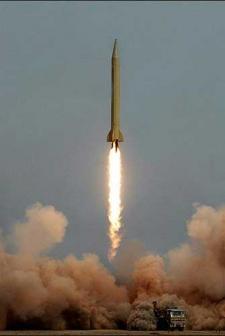US and Russia Lay the Legal Groundwork for Missile Defense Cooperation
Featured Image
Today's top nuclear policy stories, events, and analysis with excerpts in bullet form.
Stories we're following today - Tuesday, April 26, 2011:
U.S.-Russia Defense Technology Pact in the Works - Martin Matishak in Global Security Newswire [link]
- The United States is working to revive an agreement with Russia that would serve as the legal foundation for the two nations to exchange potentially sensitive information on a broad range of technologies, including missile defense systems.
- As part of the continued strategic "reset" between Washington and Moscow, U.S. Defense Secretary Robert Gates and his Russian counterpart, Anatoly Serduykov, agreed in September 2010 to create the new Defense Relations Working Group.
- For months Washington and NATO have ratcheted up diplomatic efforts to draw Moscow into collaborating on a European missile shield amid persistent Kremlin concerns that any antimissile system would undermine Russia's nuclear deterrent.
Preventing the Nuclear Apocalypse - Joe Cirincione in The Nation [link]
- Daley [in his book Apocalypse Never: Forging the Path to a Nuclear Weapon-Free World] says, “perpetual possession means perpetual proliferation.” Every time the United States goes on a diplomatic mission it brings with it the baggage of over 2,000 operational nuclear warheads. It is an avoidable hypocrisy that undermines our efforts to check the spread of nuclear weapons around the world
- These are weapons that we do not need, built to counter a threat that no longer exists, with money that we no longer have. A growing bipartisan consensus is coming to appreciate this reality.
- Normalizing the goal of zero nuclear weapons will put us on the path to a safer world—one in which citizens do not live under the shadow of impending annihilation and terrorists have no access to the world’s deadliest weapons.
Attacking the Atom: Does Bombing Nuclear Facilities Affect Proliferation? - Sarah Kreps and Matthew Fuhrman in the Journal of Strategic Studies [link]
- What are the consequences of military strikes against nuclear facilities? In particular, do they 'work' by delaying the target states ability to build the bomb?
- The findings indicate that strikes are neither as uniformly fruitless as the skeptics would suggest, nor as productive as advocates have claimed.
- In our concluding section we show that many of the conditions that were conducive to past success are not present in the contemporary Iran case.
Carter, Other Ex-Leaders in NKorea on 3-Day Visit - The Associated Press
- Ex-President Jimmy Carter and three other former heads of state embarked Tuesday on a three-day mission to North Korea, where they plan to discuss dangerous food shortages and stalled nuclear disarmament talks.
- The former leaders didn't know ahead of their three-day trip who they would meet with, but said they hoped to have talks with North Korean leader Kim Jong Il and his son and heir apparent Kim Jong Un.
- Carter's trip comes amid efforts on several fronts to reinvigorate the stalled six-nation nuclear negotiations. China's top nuclear envoy arrived in Seoul on Tuesday for talks, while a South Korean delegation was to meet with U.S. diplomats in Washington.
ElBaradei: Nuclear Nonproliferation System Is Broken - Mark Memmott for NPR [link]
- "Lots of things" have happened in the past 40 years — including the fact that nuclear technology is "out of the tube," ElBaradei said during an interview set for broadcast on Tuesday's Morning Edition.
- First, "the weapon states [those that have nuclear weapons] need to send the message loud and clear ... that they are moving toward a world free from nuclear weapons."
- The other necessary step, he said, is to bring control of the nuclear enrichment process "out of national control and under multi-national control" so that the key component of weapons is more difficult to obtain.
- ElBaradei latest book, The Age of Deception: Nuclear Diplomacy in Treacherous Times, is out this week.
A Visit to Chernobyl - Ban Ki-Moon in The New York Times [link]
- As we are painfully learning once again, nuclear accidents respect no borders. They pose a direct threat to human health and the environment. They cause economic disruptions affecting everything from agricultural production to trade and global services.
- For decades, negotiators have sought agreement on limiting (and perhaps ultimately eliminating) nuclear weapons. And this past year, we have seen very encouraging progress.
- With the memory of Chernobyl and, now, the disaster in Fukushima, we must widen our lens. Henceforth, we must treat the issue of nuclear safety as seriously as we do nuclear weapons.
EVENT: "Deterrence During Disarmament: Deep Nuclear Reductions and International Security"
- April 26, 2011 3:30-5:30 p.m.
- James Acton, Carnegie Endowment and Andrew Parasiliti, IISS-US
- Carnegie Endowment, Root Room, 1779 Massachusetts Ave., NW, Washington
- To RSVP click here



